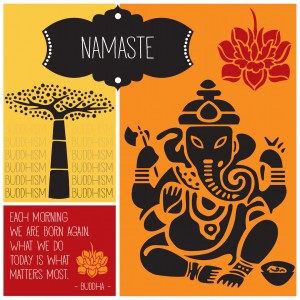Tools for Relaxation and Calm Abiding – Shamatha and Analytical Contemplation
Why would you want to take this Workshop?
Maybe you want some Rock Solid tools proved over hundreds of years to be effective in combatting these overwhelming experiences:
- You find yourself on autopilot and wonder where the time is going
- Performance anxiety in sports, public speaking or dealing with difficult people or situations
- Getting further and further behind and working harder and harder
- Emotionally reactive with friends, spouse, kids coworkers or your boss
- Emotional Reactivity is costing you peace of mind and deep connection with loved ones
- Worrying all the time about what may happen
- Feel like the walls are closing in
- Work thru things in your head but when you get there can’t or don’t execute
Shamatha helps with all of these things by creating a deep open space for you to relax into.
With guidance and practice this meditation tool can create a deep sense of calm, peace and joy.
This deep calm and joy with practice can follow you throughout the day helping you cope with life’s difficulties.
What are the specifics of the Workshop?
The Cost – $115
Location – 25 Cadillac Dr #132, Sacramento CA 95825. Near Fair Oaks and Howe ave.
Workshop Dates: 11/9/2019
Workshop Time: 10:30 – 2:00 pm
Ability to sit for up to 15 minutes in silence will aid in your enjoyment of this workshop. With practice of Samatha a deep inner peace and joy can emerge over time. This peace creates more space and time to deal with all that comes up in life.
The Workshop will focus on:
- Instruction and Practice with Peaceful Abiding or Samatha Practice
- Instruction on Secular Tibetan Buddhist Approach to Samatha (pronounced Shamatha)
- Focus will be on meditation tools not religious practices
- Utilizing Samatha Practice to reduce Emotional Reactivity
- Benefits of Samatha practice – Joyful experience of life and Pliability
- Instruction and Practice with Analytical Contemplation
- What is Analytical Contemplation and instruction on the practice
- How this deepens awareness
- Utilizing Analytical Contemplation to reduce Emotional Reactivity
- Guided meditations and Contemplations from Peace is Every Step by Thich Nhat Hanh.
- Practice and Discussion
How Does Meditation Help?
Get Started Today!
Call Lions Heart Counseling at (844) 546.6788
or Email at Jmeyer@LionsHeartCounseling.com
to learn more about the
Shamatha and Analytical Contemplation
The Cost – $115. Workshop Date: 11/9/2019
Workshop Time: 10:30 – 2:00 pm
Location – 25 Cadillac Dr #132, Sacramento CA 95825.
Near Fair Oaks and Howe ave.

What is mindfulness?
Not Grasping, Not Rejecting, Not lost in Confusion!
Everywhere you look there is more information on mindfulness,
the benefits of mindfulness and ways to be more mindful.
But what does it all mean?
In it’s essence mindfulness can be described as follows:
- Being Present, right here, right now
- Not struggling
- Not grasping or rejecting
- Accepting what is as it is without judgment
- Want to learn more – check out our upcoming Workshop
Being Present right here, right now means being in the flow. You are engrossed in the activity you are doing. You are not worried about the 15 other things that you should be doing. You are concentrated and focused on the environment around you including conversation, people, activities, sights, sounds, and smells. This concentration is not struggling to make things other than they are. This concentration is open and accepting of the world as it is without change. This creates a very open and spacious area from which to rest, even in the midst of activity.
Resting is possible, because in this state you are not grasping or rejecting for anything. You may notice that no matter what event or experience you participate in there is a sense of judgment or evaluation. For example, if you recently saw a movie or a play you may briefly describe the event, the costumes, the plot, the characters, but inevitably the discussion moves to whether or not you enjoyed it. This evaluation, separates us from the events and experiences we have and sets up a kind of grasping and rejecting. This becomes even more difficult to avoid when the discussion centers on people and talk about their activities, relationships, challenges and embarrassments.
When we learn to accept others and ourselves right where we are without the need to change, we open to a deep rest and sense of tranquility. From this space of openness we allow things to be exactly as they are without judgment. This doesn’t mean that we will give up all of our preferences or our personalities. This means we are more free to have desires, but not driven to fulfill them at ever moment. In short, we liberate ourselves to a deeper more flexible position.
What are the Benefits to Mindfulness?

- Less Emotionally reactive
- Reduced Depression and Anxiety
- Peace of mind
- Less judgmental
- Easier to be around people
- Easier to be in discomfort
- Easier to be in uncertainty
- Increased confidence
- Increased sense of well-being and satisfaction
Being less emotionally reactive can be a gift not only for ourselves, but for everyone around us. How many of us have experienced some traumatic life event, or even major social embarrassment or humiliation and vowed to never allow that to happen again. We find masterful ways of walling ourselves off from the rest of the world and protecting ourselves. Then, later in life, we find ourselves overreacting to people who criticize us, make us feel unsafe or unvalued. We find this old wound and react out of fear and self-preservation. Often times this can lead to us feeling bad and self-judging which can lead to avoidance, anxiety and depression.
Exploring these experiences with a still and tranquil mind can help us reduce anxiety and depression thru a deeper understanding of the triggers to our fear and reaction and then disarming these triggers. Ultimately, thru practice we develop a deeper peace of mind and become less judgmental of ourselves and others. As we become less judgmental we find it easier to be around people and they around us. With further practice we learn to become more present with discomfort and uncertainty and learn not to push it away. It’s not that we ever embrace these feelings, but at least we don’t hide from them or suppress them until they can no longer be held back. This leads to increased confidence and a deeper sense of well-being and satisfaction.
How Do I Practice Being More Mindful
Set a regular schedule even if it is just 5 minutes a day.
- It is an ongoing practice
- Body scan tension, constriction, pain, discomfort
- Start with deep cleansing breaths thru nose deep into the abdomen
- Pause briefly noticing the temporary nature of breath
- Breath out slowly thru the mouth
- Repeat 5-6 times
- Breathing in
- I Breathe in peace and connection
- Breathing Out
- I Breathe out pain and sorrow
- Body Scan notice How you feel now
- Breathing in
Information provided on this site does not constitute a patient therapist relationship, and should be used under the guidance of a licensed mental health professional. Information presented on this page was written by James Meyer, LCSW Lead Counselor and founder of Lions Heart Counseling Sacramento.




